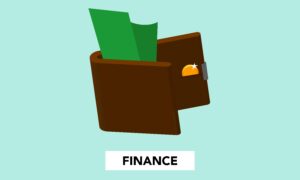Financial literacy is no longer a luxury but a necessity. The ability to manage your money effectively, plan for the future, and avoid common financial pitfalls can mean the difference between living paycheck-to-paycheck and achieving long-term financial freedom. Yet, traditional education systems often fail to adequately prepare individuals for real-world financial challenges. This is where online courses for personal finance mastery step in, offering flexible, accessible, and comprehensive learning opportunities to individuals of all backgrounds.
The Growing Popularity of Online Learning
Online learning has seen explosive growth in recent years. With advancements in technology and the widespread availability of the internet, people can now access high-quality education from the comfort of their homes. This shift is especially evident in personal finance, where online courses cater to a wide range of learners, from complete beginners to seasoned investors.
The convenience of online learning is unmatched. You can study at your own pace, revisit complex topics, and tailor your learning experience to your specific needs. For those balancing work, family, and other commitments, this flexibility is invaluable.
Why Personal Finance Mastery Matters
Personal finance mastery is about more than just budgeting. It encompasses a broad spectrum of skills, including:
Budgeting and Saving:
Learning how to create and stick to a budget, build an emergency fund, and develop a habit of saving.
Debt Management:
Understanding how to manage, reduce, and avoid unnecessary debt.
Investing:
Acquiring knowledge about different investment options, risk management, and building a diversified portfolio.
Retirement Planning:
Preparing for a secure future by understanding retirement accounts and long-term financial strategies.
Tax Planning:
Learning how to maximize deductions, credits, and efficiently manage your tax obligations.
Insurance and Risk Management:
Understanding the importance of various types of insurance to protect your assets and loved ones.
Mastering these areas equips individuals with the tools they need to make informed decisions, reduce financial stress, and work towards financial independence.
Benefits of Online Personal Finance Courses
Flexibility
One of the most significant advantages of online courses is the ability to learn at your own pace. Whether you’re a night owl or an early riser, you can fit your studies into your schedule. This flexibility is especially useful for working professionals and busy parents.
Cost-Effectiveness
Many online personal finance courses are affordable or even free. Compared to traditional education, which often comes with hefty tuition fees, online courses provide a cost-effective way to gain valuable knowledge. Platforms like Coursera, Udemy, and Khan Academy offer high-quality content at a fraction of the cost of in-person classes.
Diverse Course Options
Online platforms offer courses tailored to different skill levels and financial goals. Whether you’re looking to understand the basics of budgeting or dive deep into stock market investing, there’s a course for you. This variety ensures that you can find content relevant to your current needs and aspirations.
Expert-Led Instruction
Many online courses are taught by industry experts, certified financial planners, or seasoned investors. This access to expert knowledge ensures that you’re learning practical, up-to-date, and actionable strategies.
Interactive Learning Tools
Modern online courses often include interactive elements such as quizzes, videos, forums, and real-life case studies. These tools make learning more engaging and help reinforce key concepts.
Popular Platforms Offering Personal Finance Courses
Coursera
Coursera collaborates with top universities and organizations to offer a range of personal finance courses. For example, the University of Illinois offers a course on “Financial Planning for Young Adults,” covering essential topics like budgeting, investing, and credit management.
Udemy
Udemy provides an extensive library of personal finance courses, often at very affordable prices. Courses like “Personal Finance 101: Everything You Need to Know” and “The Complete Personal Finance Course” are highly rated and cater to a broad audience.
edX
edX offers courses from renowned institutions like Harvard and MIT. Their “Introduction to Personal Finance” course is ideal for beginners looking to build a strong financial foundation.
Khan Academy
Khan Academy’s free personal finance content is accessible and easy to understand. It’s an excellent resource for beginners who want to learn the basics without spending a dime.
Skillshare
Skillshare’s subscription-based platform features short, engaging courses on topics like budgeting, saving, and investing. Its community-driven approach encourages peer interaction and learning.
How to Choose the Right Course
With so many options available, selecting the right personal finance course can feel overwhelming. Here are some tips to help you make the best choice:
Assess Your Goals:
Identify your primary objectives. Are you looking to reduce debt, build wealth, or plan for retirement?
Check the Instructor’s Credentials:
Ensure the course is taught by a knowledgeable and experienced instructor.
Read Reviews:
Look for reviews and testimonials from past students to gauge the course’s quality and effectiveness.
Consider the Format:
Choose a format that suits your learning style. Some people prefer video lectures, while others benefit from text-based content or interactive exercises.
Evaluate the Price:
Compare courses within your budget. Remember, expensive doesn’t always mean better.
Tips for Success in Online Learning
Set Clear Goals:
Define what you want to achieve before starting the course.
Create a Schedule:
Allocate specific times for studying to maintain consistency.
Stay Engaged:
Participate in discussions, complete assignments, and take quizzes to reinforce your learning.
Apply What You Learn:
Implement the strategies you’ve learned in your own life to see real results.
Seek Support:
Join online forums or groups where you can ask questions and share insights with fellow learners.
Real-Life Impact of Personal Finance Courses
The knowledge gained from personal finance courses can transform lives. For instance, Sarah, a 35-year-old marketing professional, struggled with credit card debt and had no savings. After completing a budgeting and debt management course on Udemy, she created a realistic budget, paid off her debt within two years, and started building an emergency fund. Today, Sarah is on track to achieve her goal of buying a home.
Similarly, John, a recent college graduate, used what he learned in an investing course on Coursera to start a diversified investment portfolio. By consistently contributing to his investments, he’s building wealth for his future.
Conclusion
Personal finance mastery is a journey, not a destination. Online courses provide a practical, affordable, and flexible way to acquire the skills needed to take control of your financial future. Whether you’re looking to eliminate debt, save for a major purchase, or plan for retirement, there’s an online course tailored to your needs.
By investing time in learning about personal finance, you’re investing in yourself. The knowledge you gain will pay dividends for years to come, helping you navigate the complexities of the financial world with confidence and clarity. So why wait? Start your journey to financial mastery today, and take the first step towards a brighter, more secure future.



































